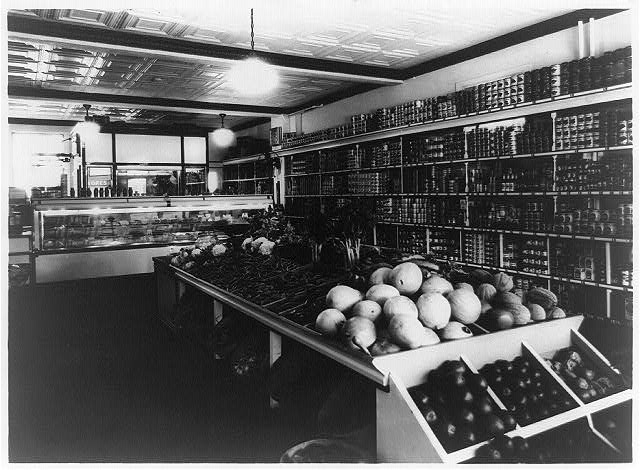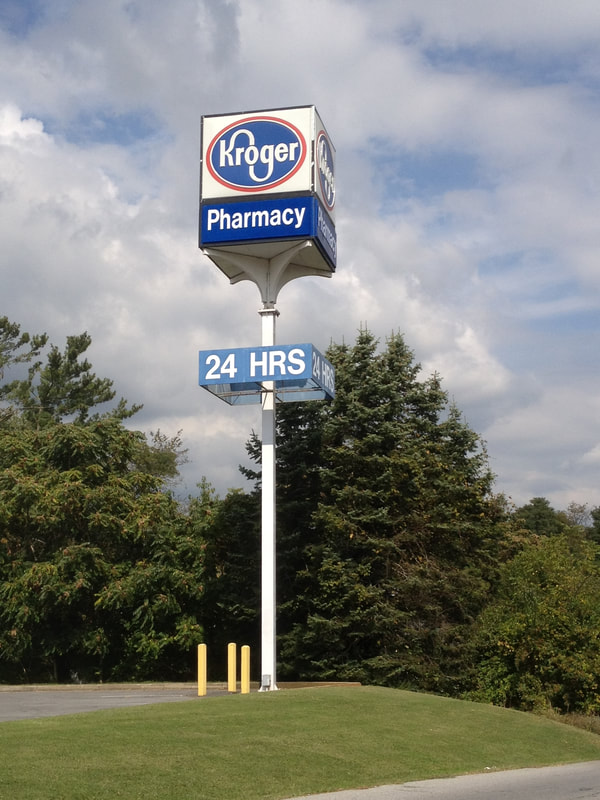|
This is the third post in our “Then & Now” series in which we highlight an example of business-related discrimination in Black history and pair it with a similar event(s) during our modern day. We share these comparisons to demonstrate the continuing fight for Black justice after the passing of the 1964 Civil Rights Act. Despite popular conceptions of America existing as a “post-racial” society, racism lives—and thrives—to this day, representing the need to further our pursuit of equity for all. Then & Now: Supermarket Redlining While both retail and dining racism offer a clear history of segregation, discrimination, and injustice, the story of American grocery stores isn’t as black and white. A look at the past 60 years of the country’s shifting supermarket landscape reveals a set of insidious maneuvers that has, ultimately, perpetuated a racial divide in the US. The Civil Rights Movement of the 1960s led to many positive policy changes and helped foster a racial consciousness across America, but self-service supermarkets and chain stores viewed the situation differently. Their white customers were fleeing cities in favor of the suburbs where racial unrest didn’t appear as pronounced. Grocers could stay in the city, but at what cost? Seeing an opportunity to earn more profits, grocery stores followed their white customers to the ostensibly “safer” suburbs where they could open larger stores with bigger parking lots, wider aisles, and more food, all on inexpensive suburban land.
Detroit serves as a prime example of this divide. In 2020, the city only had three large supermarkets: a Whole Foods and two Meijer stores. Earlier, during the mid-aughts, Detroit didn’t have a single major grocery chain. This reality becomes even more concerning when considering the city’s population breakdown: 78% of Detroit residents are Black. There’s a clear connection between the white flight from the city and the lack of big supermarkets, especially when just outside Detroit there are several Kroger stores in a ring around the border. As Detroit Food Policy Council Executive Director Winona Bynum says, “Big chains don’t see Detroit as a place where they can make money. The perception is that Detroit is a big pit of poverty and Black people will steal you blind and try to get things for a nickel.”
On top of the problematic white flight of supermarkets, many Black people continue to report discrimination and racial profiling at grocery stores, including, among other examples, being followed while shopping, directed to the sales section, or outright ignored. Not only must urban customers of color travel farther to access more affordable groceries; they also become targets of discrimination when entering grocery store chains in predominantly white suburban areas.
The history of supermarket redlining demonstrates why it’s more important than ever for us to support Black-owned grocery stores. One way to do this is by leaving a review of your favorite community supermarket on Inclusive Guide so that other customers of color will know it’s safe and welcoming. Conversely, you can use the Inclusive Guide to share any acts of discrimination or racial profiling you’ve experienced at a large grocery chain, thereby signaling to others that this store might not be a safe space for them. And, as the Inclusive Journeys team seeks to do with all businesses, we want to help by offering resources and training should a grocery store receive a low inclusivity rating. Help us cultivate a safer supermarket experience for shoppers of all identities. The first step is leaving a review on inclusiveguide.com. Sources Meyersohn, Nathaniel. “How the rise of supermarkets left out black America.” CNN Business, 16 June 2020, cnn.com/2020/06/16/business/grocery-stores-access-race-inequality/index.html. Accessed 8 Feb. 2022. Perkins, Tom. “Why Are There So Few Black-Owned Grocery Stores?” Civil Eats, 8 Jan. 2018, civileats.com/2018/01/08/why-are-there-so-few-black-owned-grocery-stores/. Accessed 8 Feb. 2022. Robison, Daniel. “Racial profiling by retailers creates an unwelcome climate for black shoppers, study shows.” The Daily, 16 Nov. 2017, thedaily.case.edu/racial-profiling-retailers-creates-unwelcome-climate-black-shoppers-study-shows/. Accessed 8 Feb. 2022.
2 Comments
3/10/2023 11:06:37 pm
This is a very informative and helpful blog I have read in a very long time. It gives all the right information a person needs to know. I recommend you read this blog.
Reply
Leave a Reply. |


